Questões sobre Gramática
Lista completa de Questões sobre Gramática para resolução totalmente grátis. Selecione os assuntos no filtro de questões e comece a resolver exercícios.
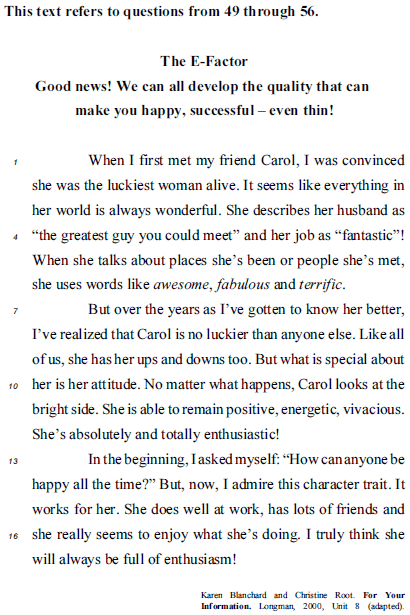
In the clause But over the years as Ive gotten to know her better (l.7), better is the irregular comparative form of
- A.
well.
- B.
nice.
- C.
bad.
- D.
old.
- E.
hard.
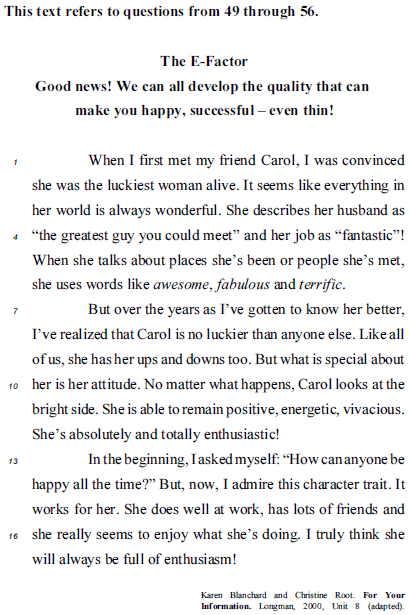
In But over the years as Ive gotten to know her better (l.7) I and her are respectively
- A.
a relative pronoun and a subject pronoun.
- B.
an object pronoun and a subject pronoun.
- C.
a subject pronoun and an object pronoun.
- D.
a possessive pronoun and a subjective pronoun.
- E.
an object pronoun and a possessive pronoun.
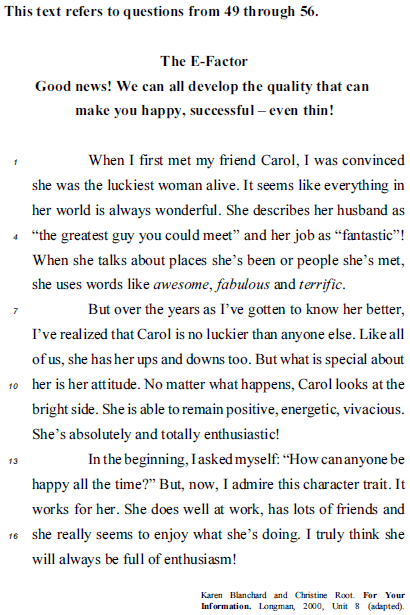
In the sentence I truly think she will always be full of enthusiasm! (l.16-17), will is
- A.
the auxiliary verb of the simple future.
- B.
the auxiliary verb of the past continuous.
- C.
in the past form.
- D.
in the imperative.
- E.
the principal verb of the sentence.
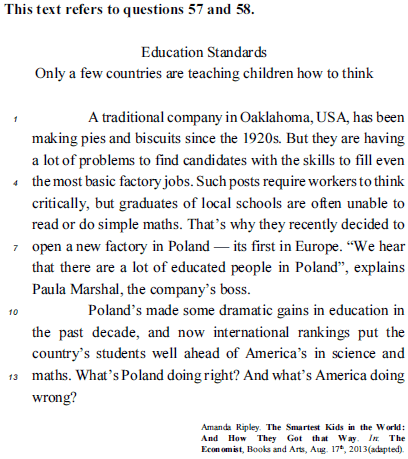
In the sentence A traditional company in Oaklahoma, USA, has been making pies and biscuits since the 1920s. (l.1-2), has been making expresses
- A.
an action that started in the past but is still a present fact.
- B.
a habit, a routine.
- C.
an action that will finish in the near future.
- D.
an action that happened in the 19th century.
- E.
an action that started and finished in the past.
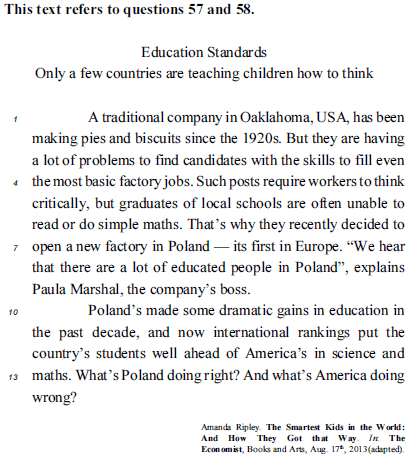
In graduates of local schools are often unable to read (lines 5-6), the word unable is
- A.
a noun.
- B.
an adjective.
- C.
a conjunction.
- D.
a preposition.
- E.
a verb.

In the structure: the latest technology, the inblack word is:
- A.
An inferiority comparative adjective;
- B.
A superiority comparative adjective;
- C.
A long superlative adjective;
- D.
A short regular superlative adjective;
- E.
A short irregular superlative adjective.

In text I, the term throughout is:
- A.
An adverb;
- B.
An adjective;
- C.
A preposition;
- D.
A conjunction;
- E.
None of the answers.
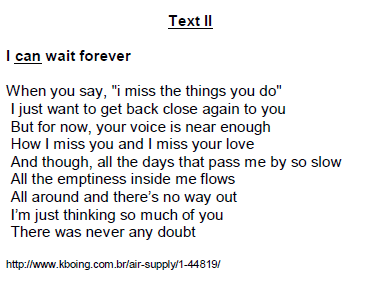
The underlined verb, in the title of text II, represents:
- A.
Permission;
- B.
Request;
- C.
Possibility;
- D.
Suggestion
- E.
None of the answers.
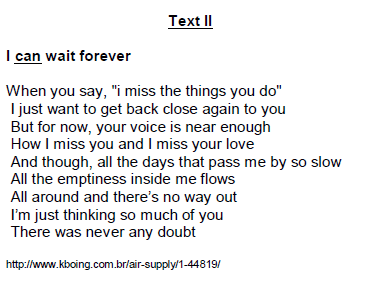
What is false about modal forms:
- A.
The most significant expression of modality is by means of modal verb;
- B.
The core modal verbs are: can, could, may, might, will, shall, would, should, must;
- C.
There is also a set of semi-modal verbs;
- D.
There are two main types of modal meaning;
- E.
None of the answers.
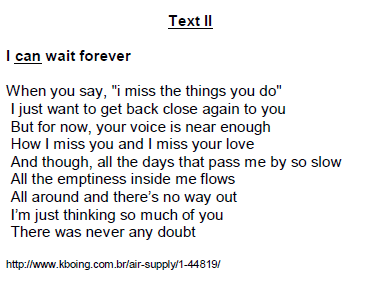
In the sentence: I just want to get back close again to you, in text II, the in-black term indicates:
- A.
Adjective;
- B.
Adverb;
- C.
Conjunction;
- D.
Noun;
- E.
None of the answers.


